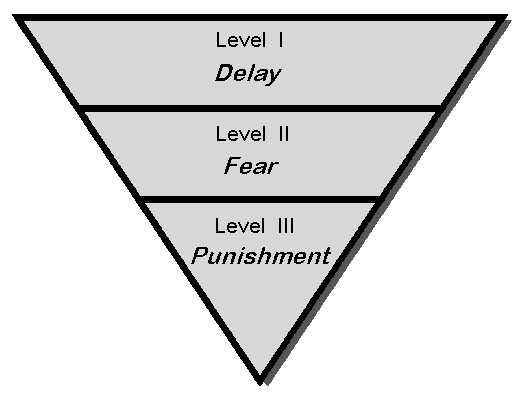
 |
|
|
| Home > Topics > Retaliation > Retaliation: A Primer |
| |
Retaliation against parents is a taboo topic in special education. No one knows how wide spread it is, or how often it occurs. Yet, whereever parents gather and whenever parents talk among themselves, the topic of retaliation receives lively attention. The focus of this essay is on parents; however, retaliation is not limited to parents alone. Anyone who advocates for children can become the target of retaliation. (click here to read about Pamella Settlegoode, adaptive PE teacher, who sued her Portland, Oregon school district for retaliation and won a one million dollar verdict that was upheld on appeal). Retaliation is the act of using official resources to "punish" parents. It can take many forms. It is not, technically, a crime and it can be difficult to detect. (Note: This is not correct. Retaliation is defined and prohibited by the Americans with Disabilities Act. Click here for the legal definition of Retaliation from the ADA) Retaliation occurs in an environment where school officials view IDEA as an unwanted imposition or as a way to develop a power base. In this setting the job is not to fully implement IDEA. Instead, school officials translate their responsibilities and duties to children and families into unquestioned decision making power over them. The profile of such officials can take two forms: openly hostile or smoothly deceptive, the latter preferring passive aggressive resistance. Hostile officials on the other hand use their position as an instrument of power to openly intimidate and even punish parents. Many parents never encounter retaliation. Those that do however, are usually strong advocates for their children. Regardless, retaliation does occur and the fear of retaliation inhibits many parents. This affords school officials wide latitude to implement IDEA and the ADA as they see fit. The Retaliation Triangle
Like the food triangle, patterns of retaliation can be classified into three levels. Level I, the most frequent, is low-level passive activity, with the goal of delaying the process. Level II is more overt; the goal is to scare parents. Level III is the form of open hostility and the goal is to punish parents. Level III retaliation is rare, but costly, dramatic, and damaging. Level I - Delay. The goal at this level of retaliation is to reduce parent effectiveness by passive resistance, such as the introduction of delays and obstacles in the many processes involved in special education. There are numerous ways officials can achieve this result. One is simply playing dumb. This allows officials to effectively ignore the law and parent rights under the law. Another is "forgetting" to do things. An official may repeatedly forget to follow-up on a commitment, such as getting back to parents with further information, or fail to schedule further meetings without several reminders. Being "away from the phone," so often that parents give up on some important issue is also effective. Yet another technique is overly technical interpretations of laws and regulations. Level I does not appear hostile, but it can be extremely effective. Level II - Fear. Level II retaliation is not hidden. At this stage officials may appear to be openly frustrated and hostile. They will state that they won't for example, allow parents to observe a class, or won't permit certain kinds of testing. The list of "can't do's" is quite long. Most of it however, is bluff. Level III - Punishment. At this level, retaliation can get ugly, with school officials openly threatening and actively trying to punish parents. In this war-like state, school officials have a variety of weapons to choose from. One is the fair hearing (due process hearing) process. Schools have vast financial resources to transform hearings into major trial-like proceedings. Since there is no accountability to taxpayers for the large sums spent in such legal adventures, officials have free rein to spend hundreds of thousands of dollars. (See the Hamilton County TN v. Zachary Deal case, where the school district spent at least 2.8 million dollars on attorneys' fees to fight parents of a child with autism.) Aiding and abetting this practice is a network of attorneys who specialize in fighting parents. These attorneys are organized into a professional group which holds national conferences and training programs at the local level. School officials are invited to attend these conferences where they are tutored in the finer points of "aggressive action," in the form of strategies to be used before an IEP meeting or at the pre-hearing conference of a due process or fair hearing. There have been recent reports of a menacing new form of retaliation involving the fabrication of child abuse charges against the target parent. Such allegations can trigger an investigation by Child Protective Services which has police-like powers. Pending the outcome of their investigation, they may choose to remove children from the home. Created: 12/18/06
| ||||||||||||||||||||||||